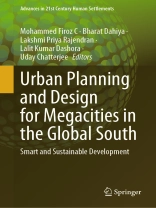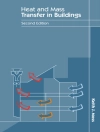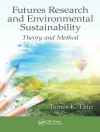This anthology, Urban Planning and Design for Megacities in the Global South: Smart and Sustainable Development, sheds light on the intricate dynamics of megacity growth in the Global South. It has compiled a rich and diverse array of evidence-based case studies, fostering discussions on emerging issues, strategies, and solutions for the enhanced planning and development of megacities in the Global South. By delving into the underlying factors propelling this rapid urban expansion, such as economic opportunities, rural-to-urban migration, and natural population growth, this volume analyzes the complex interplay of socio-economic, environmental, and political forces shaping city-regional landscapes. Examining the growth of megacities offers invaluable insights into the challenges and opportunities associated with urbanization in the 21st century. Furthermore, some cities that have not yet achieved megacity status have also been included in this book to provide a comprehensive understanding of urban growth dynamics and the related factors influencing this growth. By studying these rapidly expanding cities, their challenges in urban planning and policy implementation can be identified. These challenges often include inadequate infrastructure, insufficient public services, environmental degradation, and socio-economic disparities. In response, using case studies, the book presents conceptual and empirical strategies to tackle the various problems faced by megacities of the Global South.
विषयसूची
Landslide Hazard in Bandung City, Indonesia: on Urban Planning Towards Urban Resilience.- Environmental Planning Strategies for Resilient City: Case Study of Thiruvananthapuram, Kerala.- Urban Flood Risk Zonation using Geo SM-Nat E Tool: A case study of Kochi City, India.- Cause-effect time-series mapping of urban floods using GIS for Patna, India.- Inclusive city design for future megacity – Reclaiming streets through place-making in an inner urban core of Surat, India.- Sustainable urbanism- Making Indian religious cities accessible.- Role of Development Control Regulations in Achieving Compact Urban Development: A case of Ahmedabad, Gujarat, India.- A Comparative Analysis of Commercial Centres at Neighbourhood Level in Traditional and Planned Indian Cities.- Enhancing Resilience through Sustainable Management of Brownfield Industrial Heritage: A Case of Kolkata.- Re-opening the Halic Shipyard (Istanbul, TK) to the local community: Risks and opportunities of the regeneration of an industrial site in a megacity.- Measuring Utility of Vertical Expansion in Kolkata Region and its Future Prospect.- Urban Growth Patterns and Spatial Sustainability in Coastal Cities: The Case of Visakhapatnam in India.- Investigating the Housing Preferences of Slum Dwellers in Slum Relocation Projects: A Community-Based Operations Research Framework for Megacities in the Global South.- From Sustainable to Thrivable Urban Development: Conceptual Frameworks for Designing a Socio-Cultural, Relational, and Educational Ecosystem of Cities.- Exploring community vitality: Insights of ethnic migrants in the Indian context.- An Institutional Approach for Sustainable Service Provision in Peri-Urban Areas: A Case of Chennai Metropolitan Area.- Augmenting city planning approaches through energy retrofit: A roadmap to sustainable megacities.- Embracing the Complexity of Cities: Agent-Based Modeling for Energy Planning and Policy.- Water Security through Improved Planning, Policies, and Governance: Opportunities of U20 for Delhi and Bengaluru under India’s G20 Presidency.- Repositioning Cities as Development model based on the Concept of Creative City – A Case of Kozhikode as a City of Gastronomy.- Exploring city branding through place-making in megacities of Indian subcontinent: Case of Delhi, Mumbai, Karachi, and Dhaka.- Conclusion: Towards Sustainable and Resilient Megacities in the Global South.
लेखक के बारे में
Mohammed Firoz currently serves as an Associate Professor and the Head of the Department of Architecture and Planning, at the National Institute of Technology (NIT) Calicut, India. He had earlier served as a visiting Faculty at the Asian Institute of Technology Bangkok, Thailand and at the School of Architecture, Architecture Association (AA) London. He is also currently holding the position of Research fellow at the Shinawatra University, Thailand. His fields of interest include research on Metropolitan and Regional planning, Sustainable design and development of cities, Creative Economy for Cities, Peri Urban studies, Environmental Management and Climate adaptation etc. He is actively associated as an adviser and consultant to several organizations besides being in several research committees, editorial boards of reputed journals etc.
Bharat Dahiya is Director of Research Center for Sustainable Development and Innovation at the School of Global Studies, Thammasat University, Bangkok, Thailand, and an Extraordinary Professor at the School of Public Leadership, Stellenbosch University, Stellenbosch, Western Cape, South Africa. He is a highly experienced professional in sustainable and resilient urban development, having held leadership roles in international organizations and academic institutions. Bharat has advised ministers, mayors, and governments on strategic guidance, policy development, and technical support and collaborated with prominent organizations, such as the World Bank, UN-HABITAT, Asian Development Bank, UNDP, United Nations University, and Metropolis. He has conducted high-profile applied research resulting in influential reports, including the World Bank’s Urban Environment and Infrastructure: Toward Livable Cities, the United Nations’ inaugural report on The State of Asian Cities 2010/11, and Metropolis’ Asian Metropolitan Report. Bharat completed his M.A. in Geography at Jawaharlal Nehru University, and Master of Planning at School of Planning and Architecture, both based in New Delhi, India. He holds a Ph.D. in Urban Governance, Planning, and Environment from the University of Cambridge, UK.
Lakshmi Priya Rajendran is a post-disciplinary social scientist with a background in architecture, urban design and planning. Her teaching and research interests’ deal with city imaginaries, decoloniality, critical social and digital media, spatial representation and practice, identity negotiations, cultural encounters in cities particularly in the Global South. She is currently an Associate Professor in Environmental and Spatial Equity and Co-Director of Equality, Diversity and Inclusion at the Bartlett School of Architecture, University College London , UK. She is also the Co-chair for the UCL’s Environment Research domain, Academic co-chair for the UCL Advisory Group on Climate Change and Health and UCL’s Climate Crisis Executive Committee member.
Lalit Kumar Dashora is an Urban Risk and Resilience Specialist, currently based at the School of Global Studies, Thammasat University, Bangkok, Thailand. Prior to joining SGS at TU, he worked with Asian Disaster Preparedness Center (ADPC) in Bangkok, Thailand, and the Asian Development Bank (ADB) in Dushanbe, Tajikistan. He holds a Master’s degree in Geo-Information Science for Earth Observation, Environmental Modelling & Management from the Faculty of Geo-Information Science and Earth Observation (formerly known as ITC), University of Twente, The Netherlands, and in Urban & Regional Planning from the School of Planning, CEPT University, India. His research interests focus on risk-informed, climate-compatible urban planning and development in developing countries, Small Island Developing States (SIDS), and other climate-fragile regions in Asia and the Pacific. He is also Adviser for the Warning Research Center (WRC) of University College of London (UCL).
Uday Chatterjee is an Assistant Professor at the Department of Geography, Bhatter College, Dantan, affiliated with Vidyasagar University, West Bengal, India. He earned his Doctoral Degree in Applied Geography from Ravenshaw University, Cuttack, Odisha. His research interests encompass Urban Planning, Social and Human Geography, Applied Geomorphology, Indigenous knowledge and Hazards and Disasters, Risk Assessment and Resilience, Community Response and Environmental Issues. Dr. Chatterjee has been actively involved in editing scholarly works, including the Special Issue on Urbanism, Smart Cities, and Modelling for Geo Journal, Springer, Special issue in Global Social Welfare, Springer and Frontiers journal, Editorial Board Member of Scientific Report (Nature Portfolio) and serving as a Book Series Editor for Developments in Environmental Science, Elsevier. His extensive research and editorial contributions highlight his commitment to advancing geographical knowledge and its applications.












